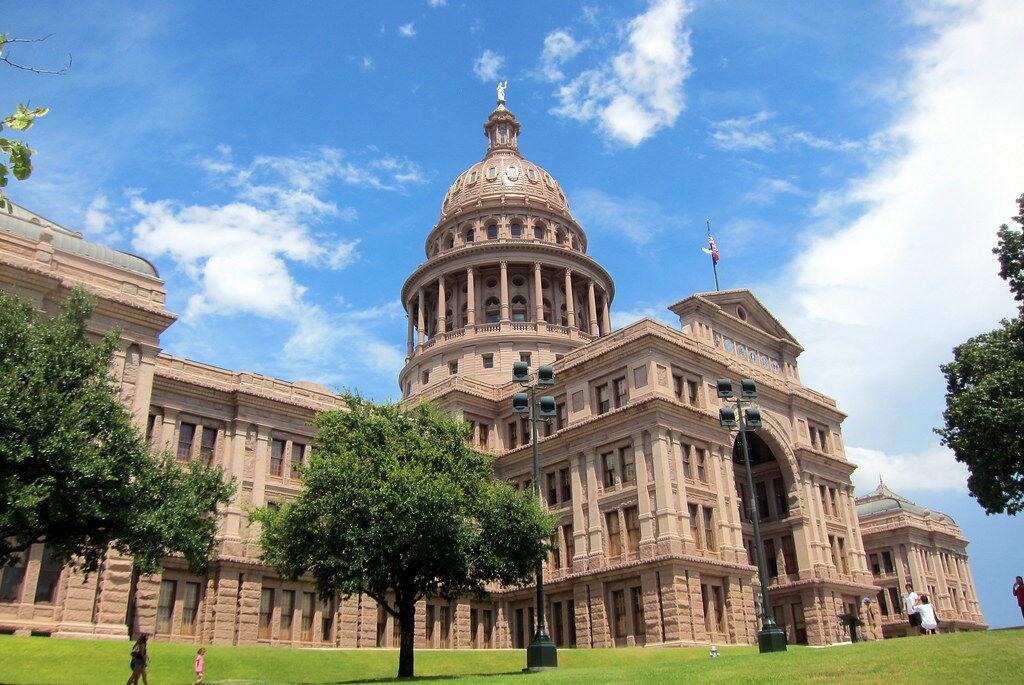Texas Gov. Greg Abbott called for a special legislative session on school vouchers on Sept 19, which is set to start on Oct. 9.
Senate Bill 8, or S.B. 8 is an education bill introduced in March by Republican Texas state senator Brandon Creighton along with eight other Republican state senators that proposes an education savings account, or ESA, program. An ESA would allow parents to spend the money usually spent on public schools on educational resources like private tuition.
The bill would provide Texas parents with up to $8,000 in an ESA account for school expenses. It is currently pending in the House Public Education committee.
Proponents of this bill argue that this relieves the burden of paying costly tuition from parents, and the parents of students can send their children to a school that best aligns with their religious views. Opponents of this bill argue that tax money will be stripped from public schools and independent school districts already struggling financially would suffer more.
Political science professor Dwight Roblyer, Ph.D., said a school voucher program was promised by Abbott, who encouraged more private school attendance.
“Abbott promised a very broad, generous school voucher program, so the legislature was at odds,” Roblyer said. “The governor’s desire is to enable all parents to choose to send their kids to a private school. He wants this done by giving parents who choose private education access to a voucher worth thousands of dollars to help offset the cost of tuition for their child at non-public schools.”
When the governor feels issues are not addressed during regular sessions, Roblyer said special sessions are called.
“This is the third special session after the regular legislative session that occurred last spring,” Roblyer said. “The legislature only meets once every two years because Texas has a two-year budget, and they meet for roughly 150 days during that regular session. The governor in Texas also has the ability to call special sessions which happen for about three weeks at a time. They can call as many as they want at whatever time they want.”
Roblyer said the Texas House of Representatives refused to pass the bill during the regular legislative session because most Democrats and rural Republicans’ districts would be hurt.
“Opposition includes Republican legislators who represent rural districts with smaller school districts and Democrats whose districts may be urban, but include areas where there is substantial poverty,” Roblyer said. “Most legislators who oppose vouchers also agree that the current level of state funding for public education is severely lacking. That’s what superintendent after superintendent, principal after principal and teacher after teacher will tell you in most places across Texas, is that there’s not enough funding for salaries or programs.”
Robyler said he believes private schools would benefit from the program while rural districts would be hit the hardest.
“I would expect that private schools possibly benefit from this program, with a lot of new private schools popping up as well because all of a sudden, there’s this new funding stream,” Roblyer said. “However, the smaller districts around us, like Caldwell or Navasota, are not going to have as good of a property tax funding line as Bryan-College Station, so any public education funding that is diverted by the legislature to pay for school vouchers will be felt first and hardest in those smaller districts. The school districts in Bryan and College Station will not be immune to those negative effects, either.”
Political science freshman Stacy Cox said she believes the Texas Legislature should focus on other issues.
“I think this is a misuse of government time, honestly, and I believe there’s so many other issues we should be focusing on rather than taking a biased stance on a public school issue,” Cox said. “The whole reason [Abbott] wants to fund private schools is to appease the parents [who] don’t want ‘woke’ values to be taught to their students.”
Cox said the legislature should instead focus on the growing cost of college.
“If we’re really going to be focusing on the funding and non-funding of schools, then we should try to talk about how college is really overpriced and it’s almost unmanageable to afford,” Cox said. “If the government is funding a private school, it’s because most private schools are a religious base, and that’s definitely 100% biased education.”
Nuclear engineering junior Kevin Pierce said school vouchers will hurt Texas education.
“It’s gonna hurt a lot of public schools,” Pierce said. “My high school back in my school district was [Cypress-Fairbanks Independent School District], and the way they worked was distributing the money equally among schools, and that really worked because a lot of their schools were in poor areas.”
The new program would prevent that from happening in the future, Pierce said.
“People are just gonna choose better schools, and that’s already an issue,” Pierce said. “Being able to distribute those funds equally with all schools gives students at least a more equal opportunity than these vouchers ever will. They’re trying to get people into these better schools, and allowing other schools to just suffer is just completely unnecessary, and it’s gonna hurt the education in our state.”










